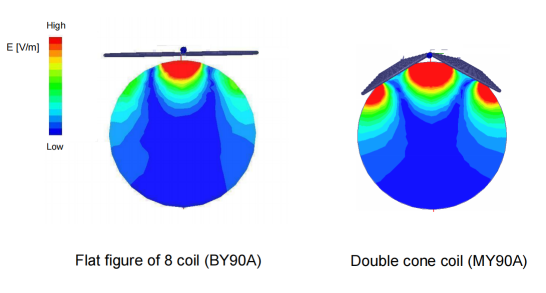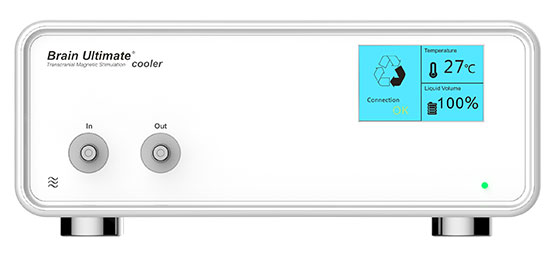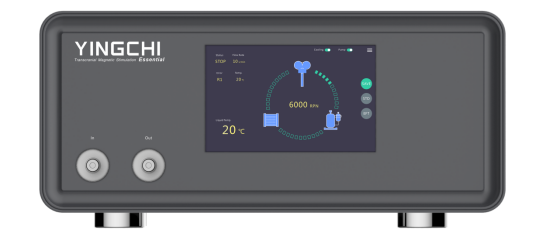Release time :2022-06-17
Source:support@yingchitech.com
Scan:1972
Transcranial Magnetic Stimulation(TMS) is a non-invasive neuromodulation technology. The time-varying pulsed magnetic field can penetrate the skull non-invasively, act on the central nervous system, generate induced currents, and cause a series of physiological and biochemical reactions, thereby affecting metabolism and neuronal excitability in the brain so that improve and treat mental and neurological diseases.
The main mechanisms by which TMS regulates changes in the body include regulating the excitability of the cerebral cortex, altering intersynaptic connections, repairing incompletely damaged nerve cells, affecting cerebral blood flow and blood oxygen levels, promoting the release of neurotransmitters in the brain, and stimulating neurotrophic factors to secrete and induce neural network oscillations, etc.
Magnetic stimulation equipment is a device that uses high-voltage energy storage capacitors to instantaneously discharge magnetic field coils to generate pulsed magnetic fields that act on the nervous system to generate stimulation. Common transcranial magnetic stimulation equipment currently used for treatment mainly includes three parts: stimulator, stimulation coil, and cooling system.
The stimulator is an important part of the transcranial magnetic stimulator. It is charged on a set of high-voltage and large-capacity capacitors, and the electronic switch is used to discharge the stimulation coil. In less than 1 millisecond, a pulse current of thousands of amperes is passed through, and the instantaneous power can reach dozens of megawatts. The pulsed magnetic field generated on the surface of the stimulation coil can reach more than 1Tesla.

The stimulation coil is a key component of TMS. The strength, depth of action, stimulation range, and focusing characteristics of magnetic stimulation are all related to the stimulation coil, including the shape, size, current direction, cooling method, thickness and weight of the coil and whether the the coil is hollow or iron-cored.
The circular coil has a wide range of stimulation, and the stimulation depth is usually 2-3cm. It is usually used for nerve electrophysiological detection, peripheral stimulation, and some diseases that require extensive stimulation.
The figure-8 coil is more focused and accurate than the circular coil, and the stimulation depth is usually 2-3cm. It is a traditional coil approved by the FDA for depression treatment. The figure-8 coil is suitable for mental illnesses treatment and research which requires high focusing.
Double cone coil has been shown to induce higher and wider spread electrical fields that have better ability to stimulate deep brain subregions. It achieves the best balance of stimulation depth and focus. The depth can achieve about 4cm. Stimulation of regions at depths of about 4cm by double cone coil becomes a powerful tool for the treatment of MDD, OCD, stroke etc.

High frequency and long-term continuous operation will cause the coil to heat up. The configuration of the cooling system is the guarantee for the continuous operation of the TMS. At present, common cooling methods include passive cooling, air cooling and liquid cooling. With the popularization of TMS technology, the number of daily consultations in hospitals and clinics is getting higher and higher, which requires TMS equipment to work continuously for a long time. Due to the high cooling efficiency of the liquid cooling system, it has become the choice of more users.
However, some users may be worried about the risk of leakage of liquid cooling system. Based on this concern, YINGCHI TMS adopts a modular design, the coolant is separated from the circuit, and a monitoring system is designed to monitor the circulation status, liquid level, and temperature in real time. The device will alarm and stop working automatically once there’s any problem.


In addition, YINGCHI optimized and upgraded the liquid-cooled chassis on the new E series TMS, and designed 3 modes: energy-saving mode, standard mode and high-efficiency mode. The equipment will automatically select the appropriate mode according to the protocol. This is an innovation in TMS cooling system technology.